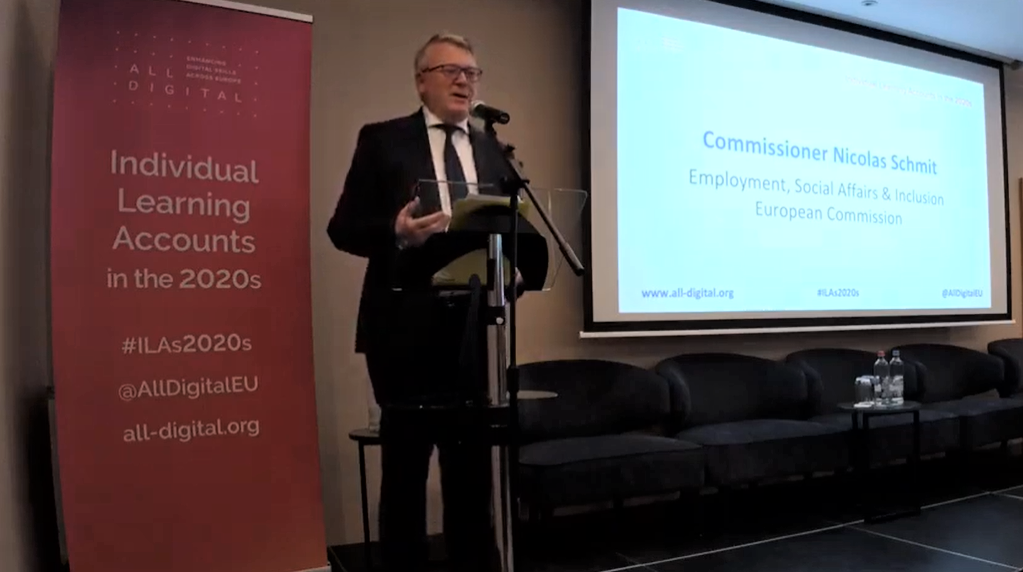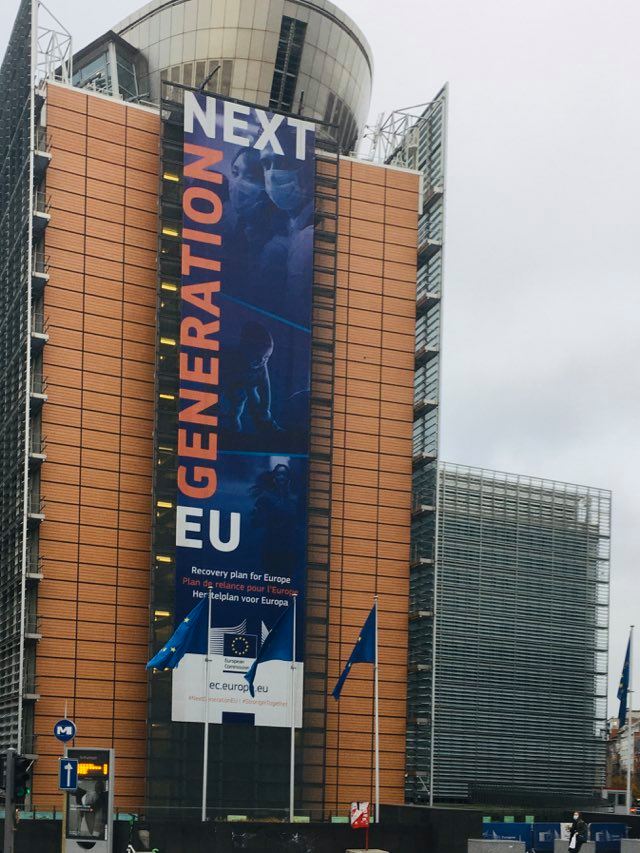The Social Good Accelerator joins the Pact for Skills!
At the end of 2020, European Commissioners Breton and Schmit made public the core of the EU’s skills strategy, the Pact for Skills. They called on all European organisations involved in the upskilling of individuals to meet the EU’s skills needs. But what does this ambition entail? And more importantly, what does it mean that the Social Good Accelerator is part of it?

Commissionner Nicolas Schmit presents the Pact for Skills during an event organised by SOGA’s partner, AllDigital
Source: AllDigital

The Berlaymont building of the European Commission in Brussels, Belgium
Source: Creative commons
Between strong ambitions and a new approach
The pact for skills is first and foremost part of the context of economic recovery after the pandemic crisis, as well as the European ambitions in terms of ecological and digital transitions. In this way, the European Union underlines the crucial role of skills in the challenges facing its economy. This strong ambition is reflected in the desire to bring all the continent’s organisations together under a single banner. The aim is for them to work “together to make a clear commitment to invest in the training of all people of working age throughout the Union”.
Employment and Social Rights Commissioner Schmit said that “skills must be a key element of the strategy” of employers in the EU. Internal Market Commissioner Breton went on to stress the importance of “European talent, which is at the heart of our industrial resilience and will drive the economic recovery” of tomorrow.
A pact to anchor the European economy of tomorrow
Any organisation wishing to join the skills pact must also sign a charter, which sets out a common vision on quality training and the objectives of the pact. By joining the pact, stakeholders will have access to resources and networking platforms. In addition, the EU will provide information on the short-term direction of European programmes, with resilience remaining at its heart.
By introducing broad partnerships within the same ecosystems, the Skills Pact is part of the European authorities’ quest for sustainable competitiveness, social equity and resilience. These objectives are reflected in the European Commission’s willingness to mobilise resources and to encourage the parties involved in the pact to take measures to promote retraining, skills upgrading and continuing education. However, this must not be allowed to hinder the ecological and digital transitions, nor local and regional development strategies.
Through the new European industrial strategy, the importance of skills has been recognised in European economies in transition. The Social Good Accelerator projects, the Social Tech Atlas and the Social Tech Academy, are part of this desire to offer the citizens of the Union the common ground and the skills necessary for the social, solidarity (and digital) economy of tomorrow. The Skills Pact remains open to any organisation driven by this philosophy of building the future together.
